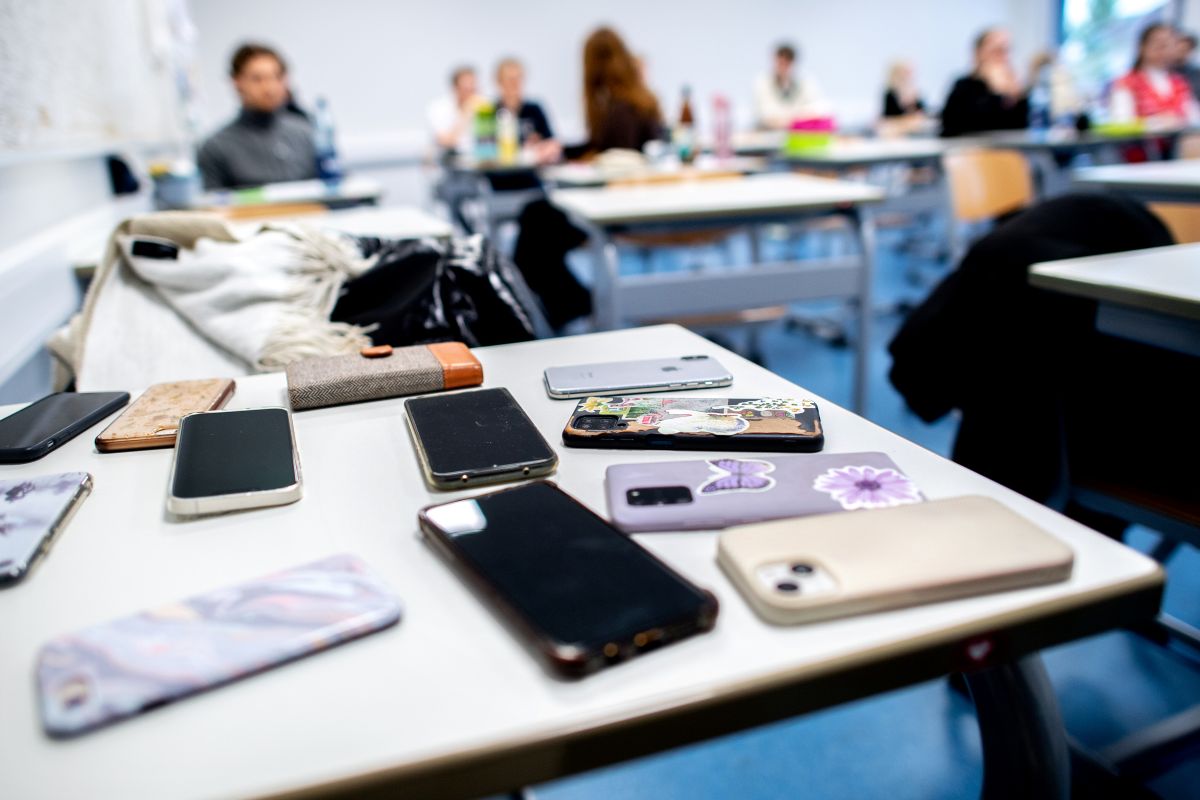Thursday's top story: Nearly 1,500 people were killed by extreme heat in Germany this summer
Extreme heat linked to climate change caused approximately 16,500 additional deaths in European cities this summer, found a study by researchers at the Grantham Institute, Imperial College London, and the London School of Hygiene & Tropical Medicine.
Germany recorded 1,477 heat-related deaths in its cities, the third most after Italy (4,597) and Spain (2,841), with Berlin reporting 140 deaths.
Southern European capitals such as Rome (835 deaths) and Athens (630 deaths) were particularly affected.
The researchers found that climate change – fuelled primarily by the burning of fossil fuels and deforestation – led to an average temperature increase of 2.2C across the cities studied this summer, and in some cases up to 3.6C.
READ ALSO: MAP - Where in Germany residents have been forced to move by extreme weather
Older adults over 65 years were most vulnerable, representing about 85 percent of deaths. Researchers warn that without a rapid transition to renewable energy, Europe’s warming summers will pose increasing risks to the elderly and strain healthcare systems.
Germany calls on US to protect freedom of journalists
German Foreign Minister Johann Wadephul on Wednesday called for journalists to be able to work freely in the United States after Washington unveiled plans to slash the length of their visas.
The German government expects media professionals "to be able to work freely and independently all over the world, including, of course, with our allies in the United States," Wadephul told the German parliament.
"The German government is committed to press freedom and free reporting worldwide," Wadephul said.
"We will therefore be watching very closely to see to what extent German journalists can work in other countries... This applies to China as well as to the United States."
President Donald Trump's administration last month trailed plans to slash journalists' stays to a renewable 240-day period -- or just 90 days for Chinese media workers -- alongside a four-year limit on student visas.
Current rules allow journalists to stay in the United States for up to five years.
More than 100 international media groups and industry bodies have urged Washington to reconsider the plans, saying they would hurt its image abroad.
A row has also erupted in Germany after a US official demanded the withdrawal of a German journalist's visa over comments he made in a video podcast about the killing of right-wing activist Charlie Kirk.
Richard Grenell, the former US ambassador to Germany and now an envoy for special missions in the Trump administration, said Elmar Thevessen from the ZDF broadcaster was an "agitator" and "radical leftist".
Grenell has also circulated a video in which Theveßen spoke about the ideological proximity of Stephen Miller, US President Donald Trump's deputy chief of staff, to the Third Reich.
Theveßen reportedly misattributed quotes to Kirk during broadcasts after Kirk’s assassination last week. ZDF has defended its correspondent, saying: "The work of Elmar Theveßen is protected by the freedom of the press."
Majority calls for stricter mobile phone rules in schools
The majority of adults are in favour of stricter cell phone regulations in schools, according to a study by the Federal Institute for Population Research (BiB) in Wiesbaden.
Seventy-two percent are against the private use of smartphones brought along without explicit permission to use them in class. For primary schools, the figure is as high as 95 percent.
Fifty-three percent agree with a general, nationwide ban on mobile phones for girls and boys at all schools - and 80 percent at primary schools.

For the BiB study, 1,312 Germans aged 18 and over were surveyed nationwide in January and February 2025.
A debate has flared up on how the use of private mobile phones in schools can be regulated. The federal states deal with the issue differently. Hesse, for example, recently introduced a ban on mobile phones with exceptions in the new school year.
READ ALSO: What's changing in German schools this year?
At the same time, a majority in the BiB survey is in favour of schools themselves imparting a responsible use of the Internet and a sensible use of mobile phones in the classroom, regardless of private smartphone use.
Traffic was slightly down on German Autobahns this summer
On the way to the summer holidays, the chance of getting into a traffic jam was somewhat lower this year.
In its nationwide balance sheet for the 12 weeks with summer holidays, the ADAC counted 116,020 traffic jams with a total length of 203,830 kilometres on the German motorways.
Both figures are slightly less than in the two previous years: In 2024 there were 119,246 traffic jams, in 2023 there were 122,686.
The total length of the traffic jams counted fell by around 1,500 kilometres compared to the previous year.
However, even if the length of traffic jams were shorter overall they cost drivers more time. According to the ADAC, the total time lost of all traffic jams this year is 119,233 hours - up 7.6 percent compared to a year ago.
READ ALSO: Everything you need to carry in your car while driving in Germany
The worst congestion section was the A99 Munich bypass, as it was also last year.
ADAC notes that Friday is usually the most congested day on the weekends, with almost twice as many traffic jams on it this year as on Saturdays and Sundays. Saturday, on the other hand, was on average the least congested day of the weekends.
New security measures at Oktoberfest
Munich's Oktoberfest 2025, which starts Saturday, will feature a strengthened security concept, announced by Police Vice President Christian Huber and city officials.
Changes include an expanded knife ban covering not only the fenced festival area but also its immediate surroundings. Entry controls will remain strict, with size restrictions on bags and a continued ban on drones, flying objects, and cannabis throughout the venue.

The police will also take a stricter line on protecting visitors from harassment and offenses including covert photography ("upskirting"). For the first time, phone charging stations will be installed in festival tents to aid victims seeking help.
New rules also prohibit e-scooters from being rented or parked near the Wiesn after 5pm, addressing incidents involving intoxicated riders in previous years.
The world’s largest folk festival is set to begin on Saturday.
With reporting by AFP, DPA and Tom Pugh.

Comments